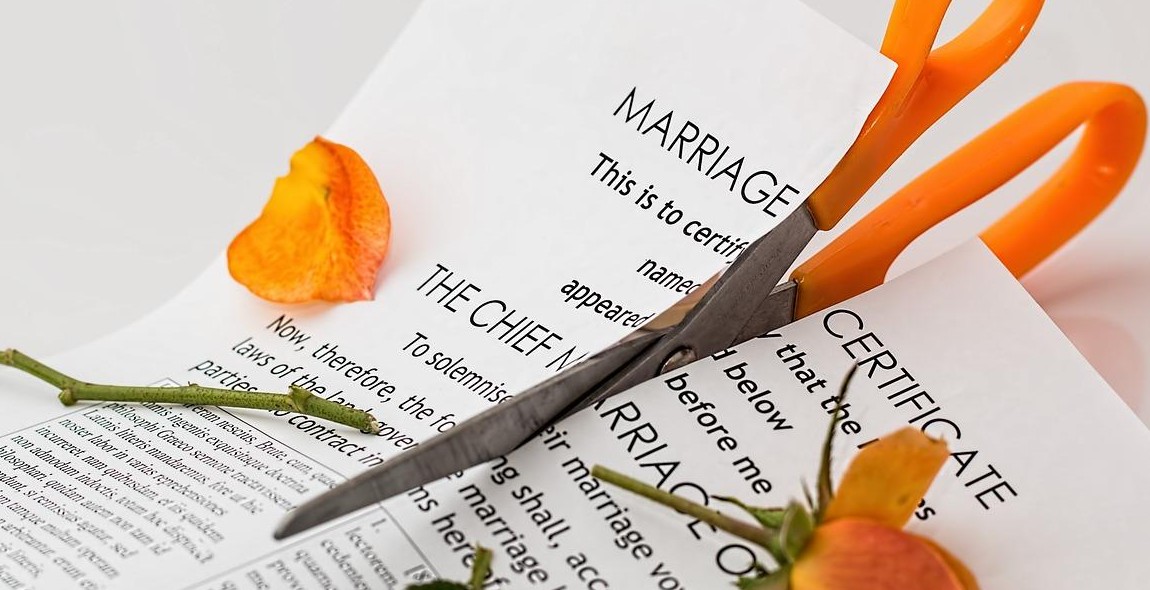The Art of Apology in Love: A Love Guru’s Guide
As a love and relationships psychology guru, I have seen time and time again how a simple apology can make or break a relationship. Apologizing is not just about saying “I’m sorry” and moving on; it’s an art that requires careful consideration and execution.
Through my years of experience, I have learned that a genuine apology can go a long way in resolving conflicts and strengthening relationships. But, on the other hand, a poorly executed apology can do more harm than good.
The Importance of Apologizing
Apologizing is not just about admitting fault; it’s about acknowledging the impact your actions had on your partner and taking responsibility for them. It’s about showing empathy and understanding, and committing to making things right.
Apologizing can help rebuild trust and restore the emotional connection between partners. It’s not a sign of weakness, but rather a sign of strength and maturity.
The Components of a Genuine Apology
A genuine apology consists of several components, including:
- Taking responsibility for your actions
- Expressing remorse and empathy
- Offering to make things right
- Committing to change your behavior
By mastering the art of apology, you can not only resolve conflicts but also deepen your connection with your partner. In this guide, I will share my insights and tips on how to apologize effectively and genuinely in any situation.
Why Apologizing is Important in Love
As a love and relationships psychology guru, I have seen firsthand the importance of apology in maintaining a healthy and happy relationship. Apologizing is not just about admitting fault or wrongdoing; it is a powerful tool for healing, respect, and rebuilding trust.
The Healing Power of Apology
When we apologize, we acknowledge the pain or hurt we have caused our partner. This acknowledgement alone can be incredibly healing. It shows that we are willing to take responsibility for our actions and that we understand the impact they had on our partner. This can help to ease the emotional pain caused by the situation and begin the process of healing.
Apology as a Sign of Respect
Apologizing is also a sign of respect for our partner. It shows that we value their feelings and opinions and that we are willing to listen to them. By apologizing, we demonstrate that we care about their well-being and that we are committed to treating them with kindness and understanding.
Apology as a Way to Rebuild Trust
One of the most important functions of an apology is to rebuild trust. When we apologize, we are making a promise to our partner that we will work to avoid repeating the behavior that caused the hurt. This promise can help to restore trust in the relationship and pave the way for a stronger, more resilient partnership.
Overall, apologizing is an essential part of any healthy relationship. It allows us to acknowledge our mistakes, show respect for our partner, and rebuild trust. If you find yourself in a situation where an apology is warranted, don’t hesitate to take the first step. Your relationship will thank you for it.
The Elements of a Sincere Apology
Apologizing is an essential part of any relationship. It’s not always easy to admit when we are wrong, but a sincere apology can help to mend the hurt feelings and repair the damage done. A genuine apology has four elements:
Accepting Responsibility
The first step in making a sincere apology is to take responsibility for your actions. Don’t make excuses or try to shift the blame onto someone else. Own up to your mistakes and acknowledge the hurt you have caused. This shows that you are taking the situation seriously and are committed to making things right.
Expressing Remorse
Once you have accepted responsibility, it’s important to express remorse for your actions. This means genuinely apologizing for the hurt you have caused and acknowledging the impact it has had on the other person. Show empathy and understanding for their feelings and let them know that you are truly sorry.
Making Amends
A sincere apology also involves making amends for your actions. This might mean offering to make things right in some way, such as repairing something you have damaged or making up for something you have missed. It’s important to show that you are willing to take action to make things right.
Promise to Change
Finally, a sincere apology should include a promise to change your behavior in the future. This means taking steps to ensure that the same mistake doesn’t happen again. Be specific about what you will do differently and how you will prevent similar situations from occurring in the future.
| Element | Description |
|---|---|
| Accepting Responsibility | Owning up to your mistakes and acknowledging the hurt you have caused. |
| Expressing Remorse | Genuinely apologizing for the hurt you have caused and acknowledging the impact it has had on the other person. |
| Making Amends | Offering to make things right in some way, such as repairing something you have damaged or making up for something you have missed. |
| Promise to Change | Taking steps to ensure that the same mistake doesn’t happen again. |

Common Mistakes to Avoid When Apologizing
Apologizing is an art that requires skill and sensitivity. While it may seem like a simple task, many people make mistakes when apologizing that can actually make the situation worse. Here are some common mistakes to avoid when apologizing:
Making Excuses
One of the biggest mistakes people make when apologizing is making excuses for their behavior. Excuses can come in many forms, such as blaming external factors or claiming that the other person provoked them. However, making excuses only deflects responsibility and undermines the sincerity of the apology.
Blaming the Other Person
Another mistake people make when apologizing is blaming the other person for their own behavior. This can take the form of saying things like, “I wouldn’t have done this if you hadn’t done that.” Blaming the other person only creates defensiveness and can make the situation worse.
Minimizing the Hurt
When apologizing, it’s important to acknowledge the hurt that was caused. However, many people make the mistake of minimizing the hurt or acting like it wasn’t a big deal. This can make the other person feel like their feelings don’t matter and that the apology isn’t sincere.
Expecting Immediate Forgiveness
Apologizing doesn’t guarantee forgiveness, and it’s important to recognize that the other person may need time to process their emotions. Expecting immediate forgiveness can come across as insensitive and dismissive of the hurt that was caused.
| Mistake | Why it’s a mistake |
|---|---|
| Making Excuses | Deflects responsibility and undermines sincerity |
| Blaming the Other Person | Creates defensiveness and makes situation worse |
| Minimizing the Hurt | Makes other person feel like their feelings don’t matter and that the apology isn’t sincere |
| Expecting Immediate Forgiveness | Can come across as insensitive and dismissive of the hurt that was caused |
Avoiding these common mistakes can help you apologize in a way that is sincere and effective. Remember, the goal of an apology is to take responsibility for your actions, acknowledge the hurt that was caused, and work towards repairing the relationship.

When Apologies are Not Enough
Apologies are an important part of any relationship, but they are not always enough to repair the damage that has been done. Here are some situations where apologies may not be enough:
Rebuilding Trust
If you have broken your partner’s trust, simply apologizing may not be enough to rebuild it. It takes time and effort to regain trust, and it may require more than just saying sorry. You may need to make changes in your behavior and show your partner that you are committed to rebuilding the relationship. This may include being more transparent, being accountable for your actions, and being patient as your partner learns to trust you again.
Seeking Professional Help
If the issues in your relationship are deep-rooted or have been ongoing for a long time, simply apologizing may not be enough to fix them. In these cases, it may be necessary to seek the help of a professional. A therapist or counselor can help you and your partner work through your issues and develop strategies for moving forward. They can also help you communicate more effectively and learn to rebuild trust.
Knowing When to Let Go
Sometimes, no matter how much you apologize or how hard you try to fix things, the relationship may not be salvageable. Knowing when to let go can be difficult, but it may be the best thing for both you and your partner. If the relationship is toxic or abusive, it may be time to walk away. If you have tried everything and still cannot make things work, it may be time to accept that the relationship has run its course.
- Remember that apologies are important, but they are not always enough to repair the damage that has been done.
- Rebuilding trust takes time and effort, and may require more than just saying sorry.
- Seeking the help of a professional may be necessary in some cases.
- Knowing when to let go can be difficult, but it may be the best thing for both you and your partner.
Conclusion
As a love and relationships psychology guru, I have seen firsthand the power of a well-crafted apology in healing relationships and strengthening bonds. Apologizing is an art that requires patience, humility, and sincerity. It takes courage to admit when we have wronged someone, but it is essential to do so if we want to maintain healthy relationships.
Remember that apologies are not one-size-fits-all. The way you apologize may differ depending on the situation, the person you are apologizing to, and the severity of the offense. However, some key elements should always be present in a heartfelt apology, such as taking responsibility, expressing remorse, and making amends.
Learning how to apologize effectively can be a game-changer in your relationships. It can help you rebuild trust, deepen your connection, and create a more loving and harmonious environment. So, don’t be afraid to apologize when you need to, and make sure to do it right.
Final Thoughts
Apologizing is not a sign of weakness, but a demonstration of strength and maturity. It shows that you value your relationships and are willing to take responsibility for your actions. By mastering the art of apology, you can become a better partner, friend, and human being.
Remember that no one is perfect, and we all make mistakes. The important thing is to learn from them and use them as an opportunity for growth and self-improvement. So, don’t let your pride or ego get in the way of a sincere apology and a chance to make things right.
Thank you for reading my guide on the art of apology in love. I hope you found it helpful and informative. If you have any comments or questions, please feel free to reach out to me. I would love to hear from you.
